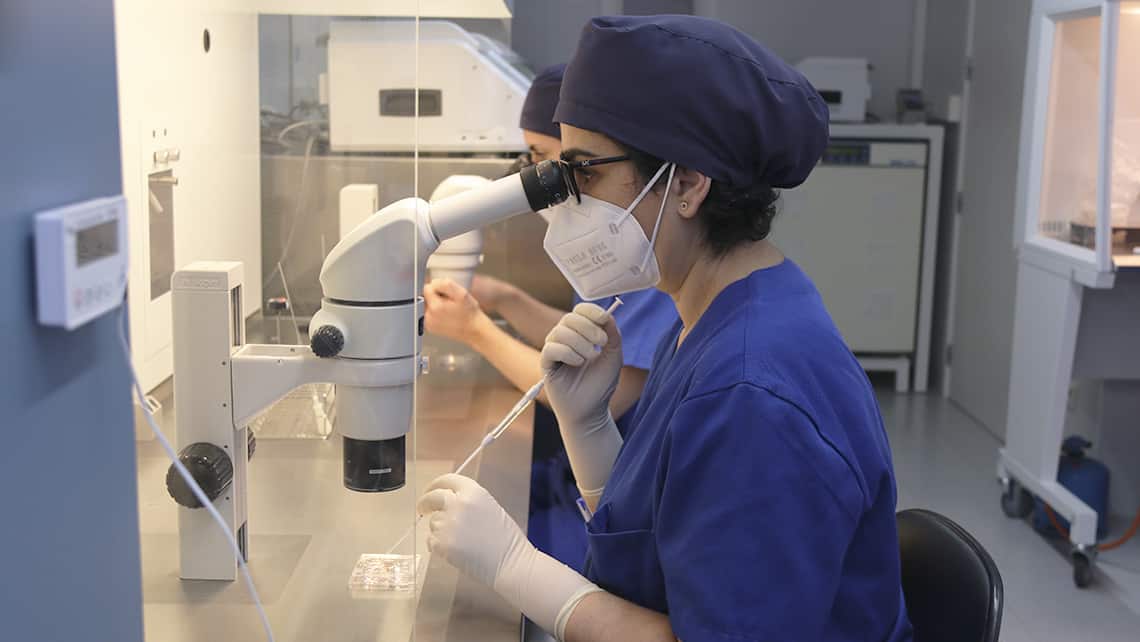
Non mature oocytes in puncture: Causes and Options.
Obtaining a mature egg for fertilisation is a necessary step to start the reproductive process. Usually, 85% of retrieved eggs after an ovarian stimulation cycle are mature eggs, and are therefore suitable for treatment using the ICSI technique. The remaining 15% are immature, and in most IVF laboratories, they are normally discarded as long as the ovarian response is within the oocytes recovery results that are considered as normal, so it should not reduce the gestation chances. If a high number of immature oocytes are obtained, the rescue and use of these oocytes which, a priori, would not be suitable for treatment, could be very useful, although it is true that not all oocytes are capable of maturing.
Índice
What is oocyte maturation?
The oocytes formation process is a complex process. It begins in the early embryonic development stages, oocytes experience several phases in prenatal life to finally temporarily halt its development, until the onset of puberty. Naturally, in each menstrual cycle, a dominant follicle containing the selected egg develops, once it reaches maturity (Metaphase II), it is released so it can be fertilized by a spermatozoon and lead to an embryo capable to generate a pregnancy.
In assisted reproduction treatments there are no dominant follicles; instead, the present follicles are aspirated in order to retrieve the oocytes before they are released. These retrieved oocytes are sometimes not mature and require in vitro maturation. This is a technique that allows oocytes to mature outside the ovarian environment, in culture conditions in the laboratory (in vitro) and generate embryos from them.
Causes of immature eggs in puncture
One of the possible causes may be a suboptimal response to the luteinising hormone (LH) surge, this hormone is responsible for oocyte maturation. This may be due to different factors such as age. However, to obtain immature eggs can happen even in young donors, although this is rare.
What happens when an immature egg is fertilised?
Immature oocyte is not suitable for fecundation because its chromosomal endowment is not correct; in case of fecundation, this type of eggs would give rise to an altered embryo from the base, so it could not be give place to the birth a healthy newborn.
What can I do to mature my eggs? Options for an immature eggs high rate
There are no measures as such that a woman can take in order to improve the oocyte maturation rate. However, at medical level, the professional can evaluate each individual case and, after a series of tests, adopt a change in the ovarian stimulation protocol, such as the use of a different type of ovulation trigger, in order to improve the results obtained, but always at the medical staff discretion.
